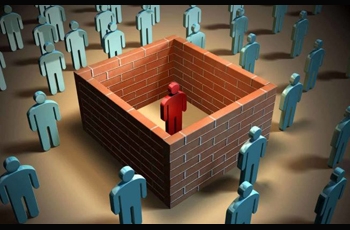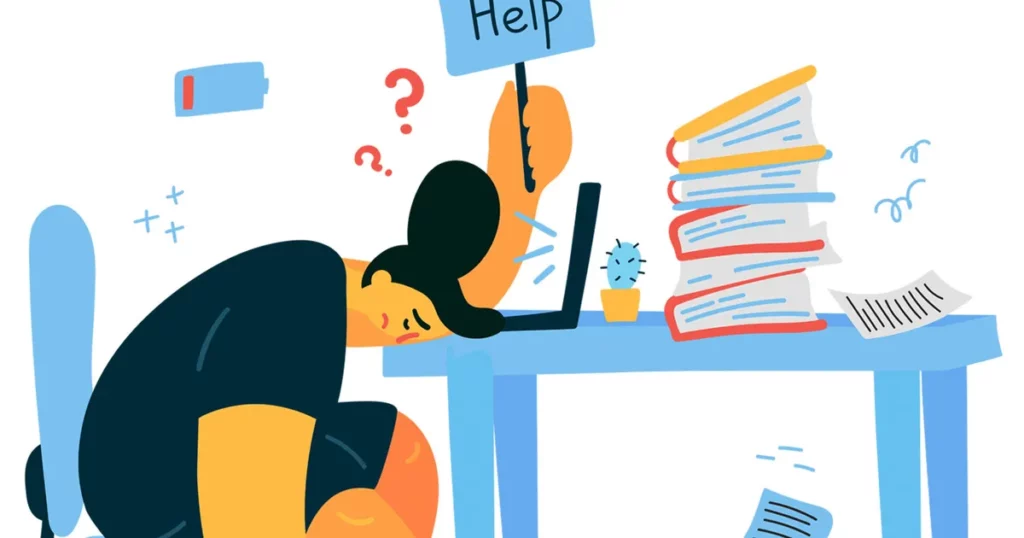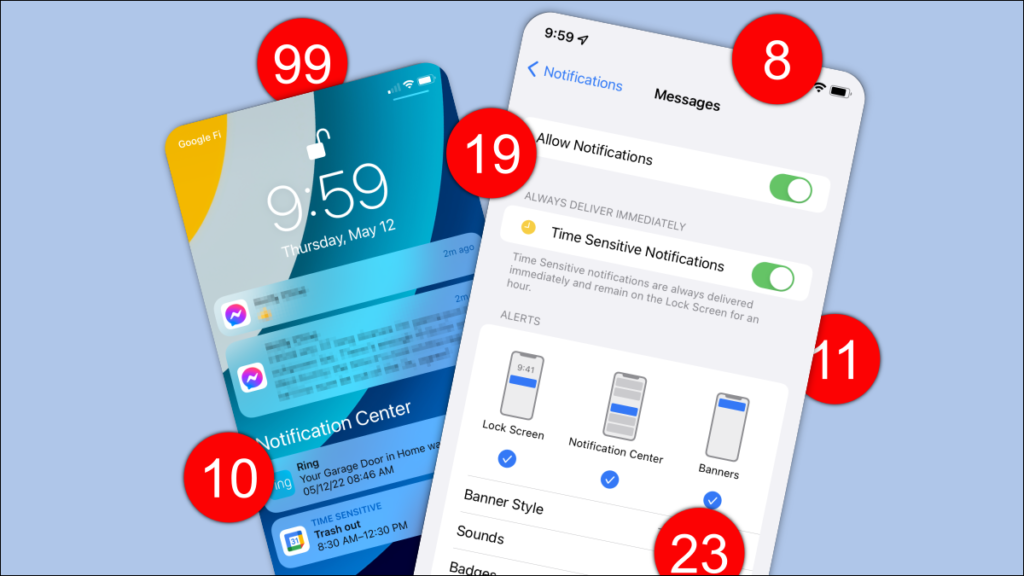It’s been almost three years since the pandemic shook the world, changing many things – including how we work. Experts predict that by 2025, more than 36.2 million American employees will be working from home. And that’s excellent news. Because the more we accept remote work culture, the more we can connect with our personal selves.
But these past few years have also revealed that working from home comes with its own challenges. Experts say that when you continuously work from home, your physical and mental state changes – sometimes for the worst.
This post simply aims to give you tools you can use to protect yourself from the adverse effects that come with working from home.
So, let’s begin.
Benefits of Working from Home
Working from home has some real benefits. No doubt. For example, you can:
- Have greater flexibility in your schedule and manage your day-to-day life much more easily
- Ditch the time-consuming commute
- Complete work tasks and assignments without distractions
- Work in a much more comfortable and a cozy manner
- Save a lot of money
- Choose where to live because you aren’t tied to a city
- Reduce your carbon footprint
- And so much more…
But with all the benefits, you can also find yourself working alone, isolated, and perhaps lacking boundaries between your work and personal life, leading to overworking. And experts say that this can take a huge toll on your mental health. Have a look.
Mental Effects
The American Psychiatric Association (APA) conducted a survey in 2021 where they found that the majority of employees working remotely had noticed a significant decline in their mental health. The respondents said that they feel isolated and lonely, and it feels difficult for them to get away from work at the end of the day.
Let’s have a closer look at why these problems occur.
Isolation
Humans are social animals, which means we need to be around people, even if we aren’t interacting or socializing with them. This habit is ingrained in our DNA through millennia of evolution, and it’s unchangeable.
Though heralded as a solution to some of the problems of our fast-paced, pre-pandemic lifestyles, now people are saying that working from home isn’t the wellness panacea it was once touted to be.

Microsoft’s 2022 New Future of Work Report found that though working from home can improve job satisfaction, it can also lead to employees feeling “socially isolated, guilty and trying to overcompensate.”
And according to the CDC (Centers for Disease Control and Prevention), poor social relationships contribute to problems like increased risk of heart disease, stroke, depression, anxiety, and even suicide.
Loneliness
Actions like talking on the phone, interacting with people on social media, texting, sending emails, and meeting on video calls give our conscious brain the feeling of being socially connected – but for our evolution-based unconscious brain, we’re just sitting in a room staring at objects emitting light.
Going to work is a great source of social interaction. And working from home cuts that down, which can impact a person’s ability to be social, even in their personal lives, says a research study.
Studies link loneliness to problems like high blood pressure, heart disease, obesity, weakened immune system, depression, anxiety, cognitive decline, and Alzheimer’s disease.
Burnout
Business support company, NordVPN Teams, did research on remote employees in the U.S., the U.K., and Canada in 2021, where they found that employees are putting in an average of two extra hours of work per day while working from home.
These two hours expand and seep into your free time, throwing out your work-life balance and accelerating burnout.

Besides that, reports have also found that many employers expect employees to do the extra hours just because they’re at home and don’t have to commute to their workplaces.
European Union has stringent laws regarding this. Read my post, “The Legal Right to Disconnect,” for more information.
Physical Effects
Besides these mental effects, working from home has also been linked to various physical health effects. Have a look.
Uncomfortable Workspaces
After the pandemic, millions of people put together makeshift workspaces to work from home. Now, makeshift workspaces created with things like kitchen tables and outdoor lounge chairs work, but for how long?
Soon, an unergonomic setup starts becoming harder on your body. And even if you get accustomed to it, you can develop back and neck pain problems.
Physical Inactivity
If you’re working from home, let me ask you this – when was the last time you put your mind to working out, and you actually did it?
A lot of people will say that in the initial months when the pandemic began and they started working from home, they were keen on keeping their bodies fit.
Now, after a few years, many of those dedicated men and women are coming up with daily excuses for not exercising.

You may be one of them. And that’s not even your fault. You get accustomed to the comfort of your home, and your brain no longer wants to put your body through the discomfort of working out.
So, in a way – if you don’t have a tremendous amount of willpower or the momentum of good habits to keep you fit – working from home promotes a sedentary lifestyle.
No Blue Light Breaks, Thus Lack of Sleep
Blue light is one of the visible lights in the electromagnetic spectrum, and our brains use it as a reference when controlling our circadian rhythms.
Simply put, you see the blue light from the sun, and your body triggers activity mode. When that blue light is absent in the evening, your body starts slowing down, prepping you for a good night’s rest.
Now, it wouldn’t be much of an issue if our blue light exposure was only from the sun. But our electronic gadgets with LED screens also emit the same kind of blue light. And since we don’t stop using our gadgets in the evening, our bodies can’t properly activate rest mode.
Learn more about blue light and its effects in my post, “What Is Blue Light? Is Blue Light from Electronic Gadgets Bad for Your Health?”
When working from home, most of us tend to pick up our phones right after we finish work. And that’s after being exposed to excess blue light from our computer screens all day.
This continuous blue light exposure results in problems like melatonin suppression, which causes you to have trouble falling asleep or getting a good night’s rest.
Binge Eating
“When you go to the office, you probably have breakfast first, and maybe you pack your lunch and some snacks, so you might have a few specific foods on hand. But it would be very unusual to have a full kitchen with you,” says Ginger Hultin, a Seattle-based RDN (registered dietitian nutritionist) at Champagne Nutrition. “Now, all your favorite foods are right there.”

This can promote binge eating, which is not necessarily good for your health, even if you’re snacking on healthy foods.
Calorie overconsumption combined with a sedentary lifestyle that comes with remote work can, in the long term, cause severe problems, including gastrointestinal effects, heart problems, unhealthy weight gain, and more.
Preserve Your Physical & Mental Health While Working from Home
We are not against remote work. In fact, our entire team works remotely, and it’s going great. The aim behind this post is to make you aware of the potential downsides, so you can take necessary further actions.
Have a look at some of the things that you can do to preserve your physical and mental health while working from home.
Build a Comfortable Workspace
If you haven’t already, invest in a good, ergonomic office setup. You have to spend eight hours+ in this setup – likely for many more years to come. So, even though it may seem a bit expensive to you at first, a decade later, you’ll thank yourself.
Separate Work and Life Hours
As I already mentioned, working from home can blur the boundaries between professional and personal life. You need to identify the blurred line and resharpen it by creating healthier work-life boundaries.
Here are some of the things you can do.
- Schedule 45-minute meetings (instead of hour-long ones) and take a break in that extra 15 minutes
- Take an actual lunch break in your dining space, away from your desk
- Keep a consistent day-to-day work schedule. Make sure that it starts and ends at the same time for the majority of the week
- Create a before and after-work ritual. For example, you may want to work out and have a nice breakfast before sitting at your table. And after work, instead of using your phone or sitting in front of the TV, you can spend time with your loved ones, take a relaxing bath, meet your friends, or go for a walk.
Remove Distractions
There are a lot of distractions in your home. For example, interruptions from family members, outside noises, visitors, and pets. All of them are somewhat manageable – but what about the distractions from your phone?
While in the office, you’d have certain reservations about your phone ringing and beeping constantly. And most importantly, about checking it out. So, many employees keep their phones off or on vibrate mode. But at home, this doesn’t apply.

So, when your phone beeps and rings, even if you aren’t checking it, it grabs your attention.
And it’s not just about losing focus. Experts say that “frequent distractions create a physiological hyper-alert state that activates adrenaline and cortisol production, which is a stress indicator.”
This results in you not being able to focus properly, which makes you feel stressed about not being productive, which causes you to focus even less, creating a stress loop.
Experts say that this kind of constant stress state causes emotional and mental exhaustion, draining your ability to concentrate, focus, and recall information.
So, try to treat your phone as if you’re in the office. Turn off unnecessary notifications, and put your phone in silent or at least vibrate mode.
Limit Your Post-Work Screen Time
This is super important, as not letting your brain have some downtime can have serious consequences. Though we view using our phones as a way of winding down, in reality, it’s the exact opposite.
Your phone exposes you to tons of information, which your brain then has to process and store. This takes up an immense amount of the brain’s processing capabilities, and since you’re doing this to your brain when it’s already tired, you may start seeing the symptoms of technology-induced information overload.
Information overload happens when your brain consumes more information than it can handle. This causes it to function poorly, leading to numerous problems. I’ve already written an in-depth post about this entitled, “Technology & Information Overload: How Digital Overstimulation from Your Gadgets Harms Your Well-being.” So, give it a read.
Keep Yourself Moving
If your work requires you to sit all day, be sure to keep your body moving throughout the day. It can be reaching the kitchen to fetch a glass of water, stretching for 5 minutes after 1 hour of work, or playing with your pet for a few minutes. Do whatever is feasible – just keep your body moving.
Be Realistic About Your Time
Just because you’re at home doesn’t mean you’re free 24/7. You need to be realistic about your time and express the same to your employer. Aside from some urgencies, you need to start your work and end it on time.
This way, you can invest the remaining time in yourself and the people you love – the true benefit of working from home.
Final Thoughts
The work-from-home culture has been one of the best changes we humans have adapted to in a while. Embracing this culture will only take us forward as a society.
But, just like Marian Wright Edelman said, “In every seed of good, there is always a piece of bad.” Working from home also has its downsides, as you saw in this post.
But the solution to such problems isn’t to condemn the situation but to create a healthier balance. And once you do that, you can simply extract the benefits without being subjected to the risks that tag along.








